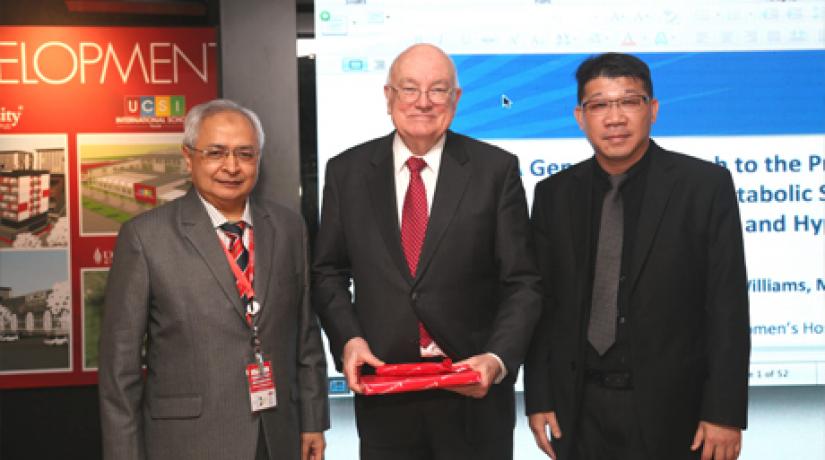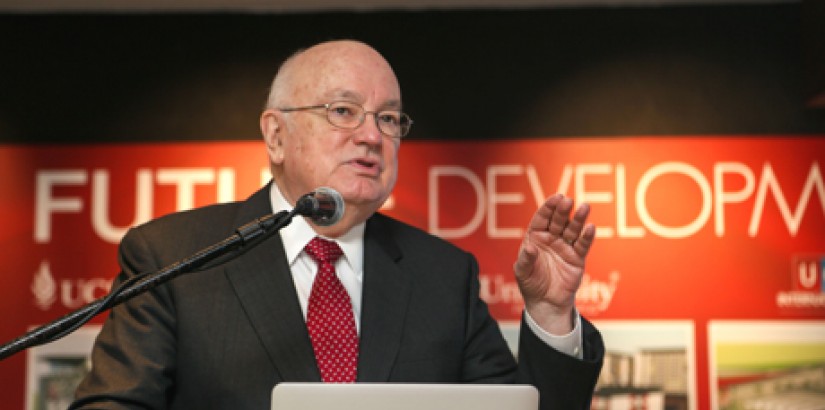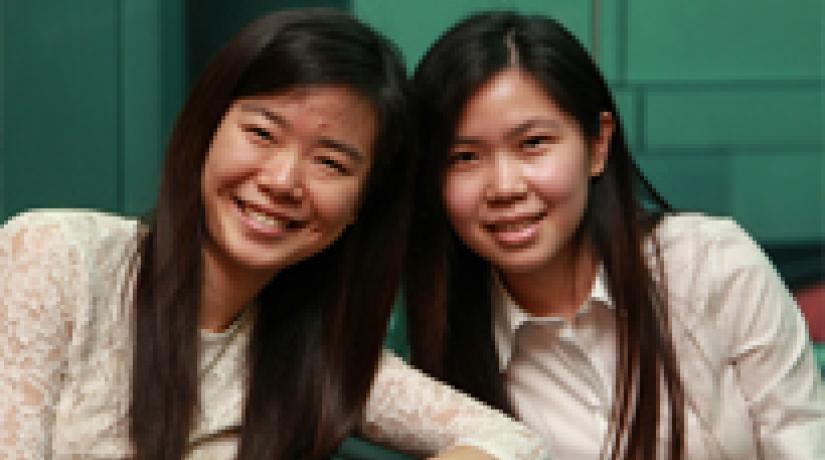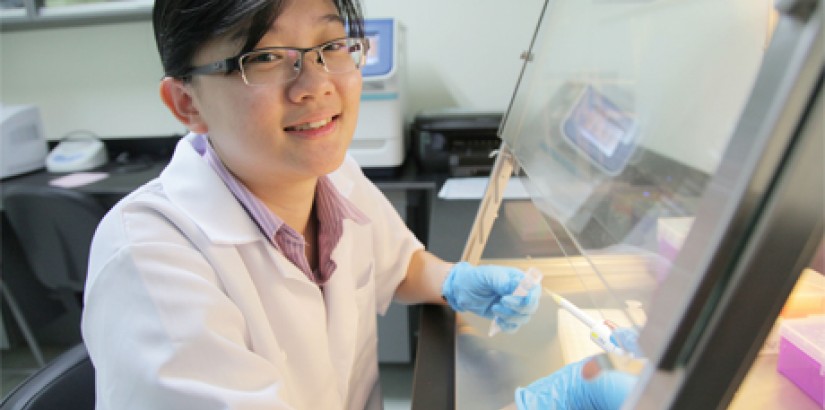2016
18 NovMEDICINE GETS PERSONAL Harvard’s Professor Gordon Williams makes a case for precision medicine at UCSI University


KUALA LUMPUR: UCSI University’s (UCSI) medical students received a glimpse of the future of healthcare from their visiting professor Dr Gordon Williams, a Professor of Medicine at Harvard Medical School as well as the Director of the Hormonal Mechanisms of Cardiovascular Injury Laboratory at Harvard’s Brigham and Women’s Hospital.
He spoke at both the University’s Kuala Lumpur and Kuala Terengganu campuses on precision medicine, an emerging treatment model that proposes the customisation of healthcare with medical decisions, practices and products tailored on the basis of the patient’s genes.
How precision medicine works is that it uses the patient’s genetic profile to identify the multiple genetic variations that influence how people respond to medications. This allows for more accurate predications as to which treatment or prevention strategies will work best for the patient.
It is advocated as a better alternative to current models which are devised from population-based data and does not account for possible individual differences. Individuals sharing the same condition can react in vastly different ways to treatment, resulting in the physician having to use ‘trial and error’ to prescribe the right medication.
“The cost of healthcare continues to increase around the world and we need to be more specific in terms of treating and preventing the illnesses that affect us,” said Prof Williams.
“Clear treatment guidelines don’t exist and the one-size-fits-all treatment model is time-consuming, costly, exposes patients to unnecessary side effects and is often clinically ineffective. We need to give what the population needs both in terms of appropriate care and feasible costs.”
Precision medicine has been gaining traction in the past decade thanks to tremendous advances in genetics and gene sequencing. It was a key agenda in US President Barack Obama’s administration which he highlighted in his State of the Union address in 2015, putting it on par with Nixon’s war on cancer in 1971. However, there is still much to be done.
The approach is far from fully developed and it may take a few more decades for precision medicine to become the new treatment standard. Issues like privacy and having to achieve a balance between public healthcare practices and personalised medicine are just a few waiting to be resolved but Prof Williams, for one, is cautiously optimistic.
“Getting it structured for everyone in the next 20 years is not very likely but I think it might start to happen within this decade,” he said. “And if you can take care of, let’s say, 20% of the 1.4-billion hypertensive population that’s still about 280 million individuals treated.”
Prof Williams’s recent visit to UCSI saw him engaging not only the students but also the healthcare community at Hospital Sultanah Nur Zahirah where UCSI’s students undergo their clinical training.
“If something looks like that’s really the way things are going to be in the future, I embrace it and I want to share it,” he said. “With some restraint of what might be feasible tomorrow, I am enthusiastic with the concept of precision medicine.”
UCSI has enjoyed a long standing relationship with Harvard beginning in 2014 when UCSI sent its top medical student, Cherish Chong Chiu Wern, for a year-long intercalated research programme in Boston. She was mentored by Prof Williams and under his guidance, went on to make a pioneering discovery on the regulation of aldosterone and corticosterone hormones by mineralocorticoid receptors.
Cherish was not the only student from UCSI to experience research at the Ivy League university. Last year, UCSI sent two more of its second-year medical students, Tan Jia Wei and Ting Pei Yee, abroad. Their research endeavours are currently supervised by Prof Williams, with Jia Wei tackling human genetic phenotype-genotype correlation and Pei Yee extending Cherish’s research in aldosterone regulation.
“All three of them have been just marvellous,” said Prof Williams who estimated that between them, the girls will generate up to 18 peer-reviewed publications by the time they are done with their data. “I like to say that students who are interested in research are the ones with a fire in their belly. They want to find answers and we need to continue nurturing and encouraging them.”
UCSI is the only private university in Malaysia whose students are annually selected for high impact research programmes at leading universities such as Harvard, Imperial College London and Tsinghua University. Such collaborations provide invaluable opportunities for students to be engaged in the pursuit of knowledge at its cutting edge.








